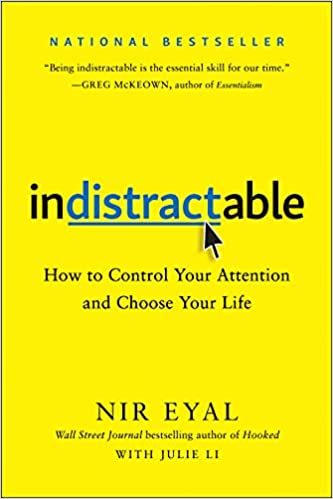
I thought I had read this book before when I took it out, but there was no history on it. Upon closer investigation, this appears to be a part 2 to his previous book: Hooked. And it is weird.
This book largely focuses on different strategies to take back your time and how to not be so distracted by the world around you. And if you are reading it for that purpose, it is awful. The useful stuff appears on just about every productivity tips list, and there is a complete lack of nuance or acceptance that different people have different lives and needs. The work section in particular really requires that you have control over your own schedule, and he advocates for making your friends and family feel bad for looking at their phones.
But as a sequel to Hooked, it is fascinating. He previously wrote a book about how to use psychology to make addictive products, and in this one he’s putting the onus on the user to not fall for the things he pushed for in the previous one. The first one was from the perspective of the product, this one from the user, and he never puts together that he is remotely responsible for creating the problem in the first place.
And that’s really a larger tech and design issue that I am not getting into right now.
Overall, if you are looking for ways to become better at controlling your own attention, not this one. But if you read Hooked and you want to watch the author completely avoid any accountability in creating a world where technology is specifically designed to be addictive and blame the user for allowing themselves to become addicted to technology and the world at large around them, including I think using several of the same studies from the first book reframed as a bad thing, it’s actually pretty interesting.